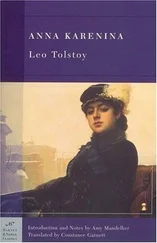Vronsky’s old friend and fellow soldier Yashvin fancied, as he approached him, that Vronsky saw him but was pretending not to see. This did not affect Yashvin in the slightest: interested only in his own advancement, and distinctly aware of the high regimental perch Vronsky now inhabited, Yashvin was above all personal dignity. At that moment Yashvin looked upon Vronsky as a man at the pinnacle of a remarkable career, and would think himself foolish to miss any opportunity to thrust himself before the great man. He went up to him.
Vronsky stood still, looked intently at him, recognized him, and going a few steps forward to meet him, shook hands with him very warmly.
“Well, now, Alexei Kirillovich,” said Yashvin. “As strange as it feels to see any Russian soldier setting off on such a mission, I can imagine none other but you undertaking it. Did you ever imagine we would see such a day arrive?”
“I have had a feeling for some years that things were going this way,” said Vronsky, turning his head for a moment to admire the figure of a fashionable woman with a charming, fuchsia Class III. “Since the rise of Stremov, you know, with his decidedly liberal bent on the Robot Question. After the death of the… oh, dear, you know the fellow I mean. With the unusual face.”
Yashvin hurried to fill in the gap, eager to impress Vronsky with his understanding. “Karenin.”
“Yes, that’s right. Karenin.”
Vronsky’s jaw twitched impatiently from the incessant, gnawing toothache that prevented him from even speaking with a natural expression. The Karenin affair had been rather a shocking incident, now that he recalled it: a minister of the Higher Branches, murdered by his wife in his own bed. “He was a hardliner on mechanical development, that Karenin. Stremov always gave every impression of seeing things in a different light. Though it will certainly feel strange, as you say, to sit on the opposite side of a bargaining table with UnConSciya.”
“Yes, well…,” Yashvin began. Vronsky looked off into the distance as they heard the pleasant thrum of the arriving Grav. Right on time, reliable and efficient as always.
“I am sorry to intrude upon your solitude. I merely meant to offer you my services,” saidYashvin finally, scanning Vronsky’s face. “To deliver one’s brother-men from endless war is an aim worth death and life. God grant you success outwardly-and inwardly peace,” he added, and he held out his hand. Vronsky warmly pressed his outstretched hand, and began to respond, when suddenly he could hardly speak for a throbbing ache in his strong teeth, which were like rows of ivory in his mouth. And all at once a different pain, not an ache, but an inner trouble that set his whole being in confusion, made him for an instant forget his toothache. To make peace with UnConScyia was unquestionably a great boon for Russia and the Russian people, but what did it mean for him? The only purpose his life had known, the only star around which the planet of his being had ever revolved, was the making of war, the heavy grinding power of the Exterior suit in motion, the searing flash of the whip. Vronsky’s eyes took in the arriving Grav, elegantly whooshing forward on its magnet bed. He thought suddenly of a half-remembered girl, of Princess Kitty Shcherbatskaya: one of a dozen or more such girls whose head he had turned, at one time or another, with easy talk of love. She is married now , Vronsky thought, to that funny man, that miner…
For one cold moment, Vronsky saw himself reflected in the mighty silver prow of the Grav in the most uncharitable and unforgiving light: a body approaching middle age, a soldier lacking a war, a man lacking a wife.
He rubbed at his aching chin, and Lupo let out a little querying yelp.
“Yes, yes, old friend. Of course. I still have you.”
Just at that moment, the sun dipped below the horizon line, and Vronsky and his Class III climbed aboard the Grav.
ALMOST TWO MONTHS had passed since Anna’s suicide at the Grav. The hot summer was half over, and Count Alexei Kirillovich Vronsky was on his way to deep space.
The horrifying death of Anna Arkadyevna Karenina had generated the inevitable deluge of scandalous conversation; but, as is so often the case, even this most salacious bit of gossip grew stale, and soon gave way to the next item of interest. Which, in this case, was a most shocking item indeed: The home planet of the Honored Guests had been located. A speck on the star maps of the astronomers, a smear of red dust flickering in the shadow of the moon, this planetoid was quickly dubbed the Nest by a public hungry for news of the invaders; it became de rigeur at society gatherings for someone to trot out a telescope, so all present could glance with fearful wonderment at the home of the enemy.
“We would be remiss, however, only to look and not to act.” This was the challenge posed to the people of Russia by that man now openly acknowledged to be their one and only leader, Alexei Alexandrovich Karenin, known lovingly as Tsar Alexei: The King With No Face. His head enrobed in shimmering metal, carrying himself with the pomp and solemnity befitting the recently bereaved, the great man stood before the people at Petersburg Square and announced the momentous decision: Our forces, the brave regiments of Russia, would travel aboard specially designed shuttles to the Nest, wherefrom the lizard-like aliens and their worm-machine steeds had emerged, and launch a counter-attack.
“Know, my people, that this decision was not an easy one, for our courage will inevitably cost us many lives. But still it is necessary that we go-for the ‘Honored Guests’ have made it clear that they shall not stop until we are defeated, and that cannot be allowed.
“Now we shall be the guests,” Karenin concluded, waving his metal fist. “And they the most unwilling hosts.”
YES,hissed the Face, even as Alexei stepped off the podium and the crowd roared its approval. LET THE REGIMENTS COME. LET THE MIGHTY REGIMENTS COME.
***
And so, as the blackness of space rushed by outside, Vronsky in his long overcoat and slouch hat, with his hands in his pockets, strode up and down the unnaturally lit hallway of the shuttle, like a wild beast in a cage, turning sharply after twenty paces. His old comrade Yashvin fancied, as he approached him, that Vronsky saw him but was pretending not to see. This did not affect Yashvin in the slightest. At that moment Yashvin looked upon Vronsky as a man taking an important part in a great cause, and he thought it his duty to encourage him and express his approval. He went up to him.
Vronsky stood still, looked intently at him, recognized him, and going a few steps forward to meet him, shook hands with him very warmly.
“Possibly you didn’t wish to see me,” Yashvin said, “but couldn’t I be of use to you?”
“There’s no one I should less dislike seeing than you,” said Vronsky. “Excuse me; and there’s nothing in life for me to like.”
“I quite understand, and I merely meant to offer you my companionship,” said Yashvin, scanning Vronsky’s face, which was full of unmistakable suffering. “I am honored to count myself among your friends. Your volunteering to lead the first attack wave proves your great usefulness to the state.”
“My use as a man,” said Vronsky, “is that life’s worth nothing to me. And that I’ve enough bodily energy to cut my way into their ranks, and to trample on them or fall-I know that. I’m glad there’s something to give my life for, for it’s not simply useless but loathsome to me. Anyone’s welcome to it.” And his jaw twitched impatiently from the incessant gnawing toothache that prevented him from even speaking with a natural expression.
Читать дальше












